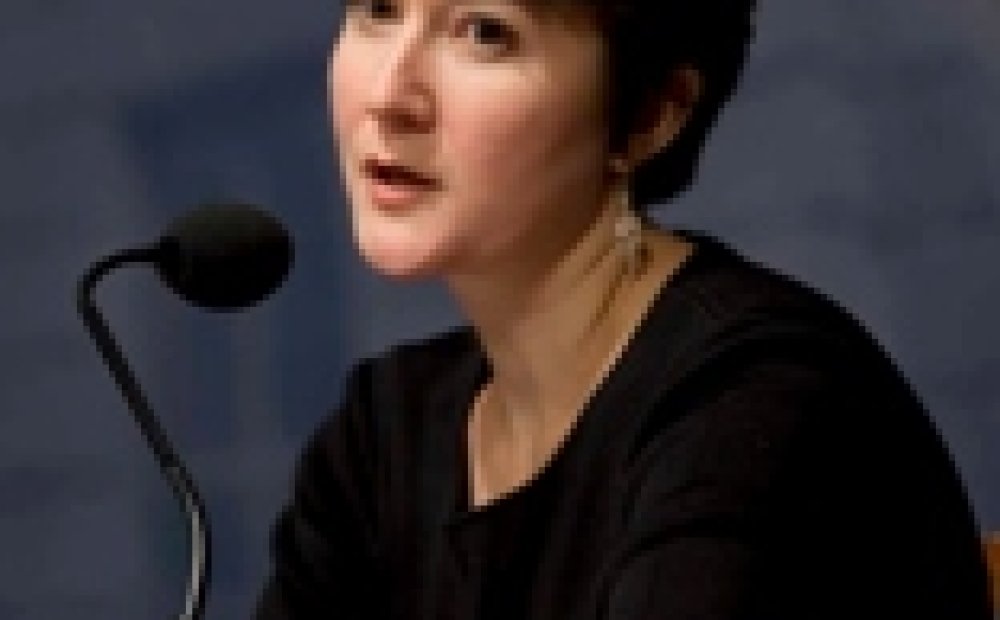The Line

At a 27 September 2010 Kennan Institute book discussion, novelist Olga Grushin discussed the genesis of her new book, The Line, focusing on the historical episode that served as a basis for the story as well as the forces that shaped its ideas and landscapes in the process of writing. In the author's own words, the novel is not a historical narrative but rather a "fable with the elements of absurdity."
Grushin noted that she had found the inspiration for The Line in the story of Igor Stravinsky's famous return to Leningrad in 1962; after living in exile for nearly half a century, the eighty-year-old composer accepted an invitation from Khrushchev to conduct a series of performances in the Soviet Union. The demand to attend the concerts was so high that the announcement of Stravinsky's return generated a yearlong ticket line.
Grushin did not use the actual historical event in the novel. The four protagonists of The Line comprise a family whose experiences with the queue begin when their estranged grandmother expresses a desire to attend the rumored concert. The rest of the family are subsequently charged with waiting on line at the kiosk, for several hours daily, in hopes of obtaining tickets to see the famed composer, "Igor Selinsky." The story unfolds into an exploration of each family member's experience at the kiosk. As time elapses, the characters on the line go from initially being strangers to developing a feeling of community within the queue.
Grushin explained that the ticket line served as a metaphor for the universal human desire for hope. By placing the "hopeful, optimistic line" in a bleak location – a deliberately unnamed version of Soviet-era Moscow – the author sought to explore concepts such as courage, longing, and danger through the lens of the individual human experience.
Although Grushin asserted that The Line is not a historical novel, the story's setting is inspired by major themes present during three distinct periods of Soviet history. The idea of repression that is inextricably linked with Stalin's reign during the 1930s lends itself to the emotionally darker aspects of the novel's backdrop. Meanwhile, the elements of excitement and optimism found in the story reference the cultural "thaw" that transpired under Khrushchev 's leadership during the 50s and 60s. The stagnation associated with Brezhnev in the 1970's is represented as the force that drives the people to wait for an entire year in the hope of some change in their lives. Incorporating the emotions deeply rooted in these various historical periods allowed Grushin to craft a novel that has a distinctly Soviet feel.
The author further explained that by employing "mythical geography" to perfect the setting for The Line, she was able to create an additional dimension within the story. Grushin's decision to maintain the story's backdrop as both atemporal and anonymous is essential to the novel's atmosphere of a dark Russian fairy-tale as well as its emphasis on the universal human experience of those hoping to find meaning in their lives.
By Amy Shannon Liedy
Blair Ruble, Director, Kennan Institute
Speaker
Hosted By

Kennan Institute
The Kennan Institute is the premier US center for advanced research on Eurasia and the oldest and largest regional program at the Woodrow Wilson International Center for Scholars. The Kennan Institute is committed to improving American understanding of Russia, Ukraine, Central Asia, the South Caucasus, and the surrounding region through research and exchange. Read more
